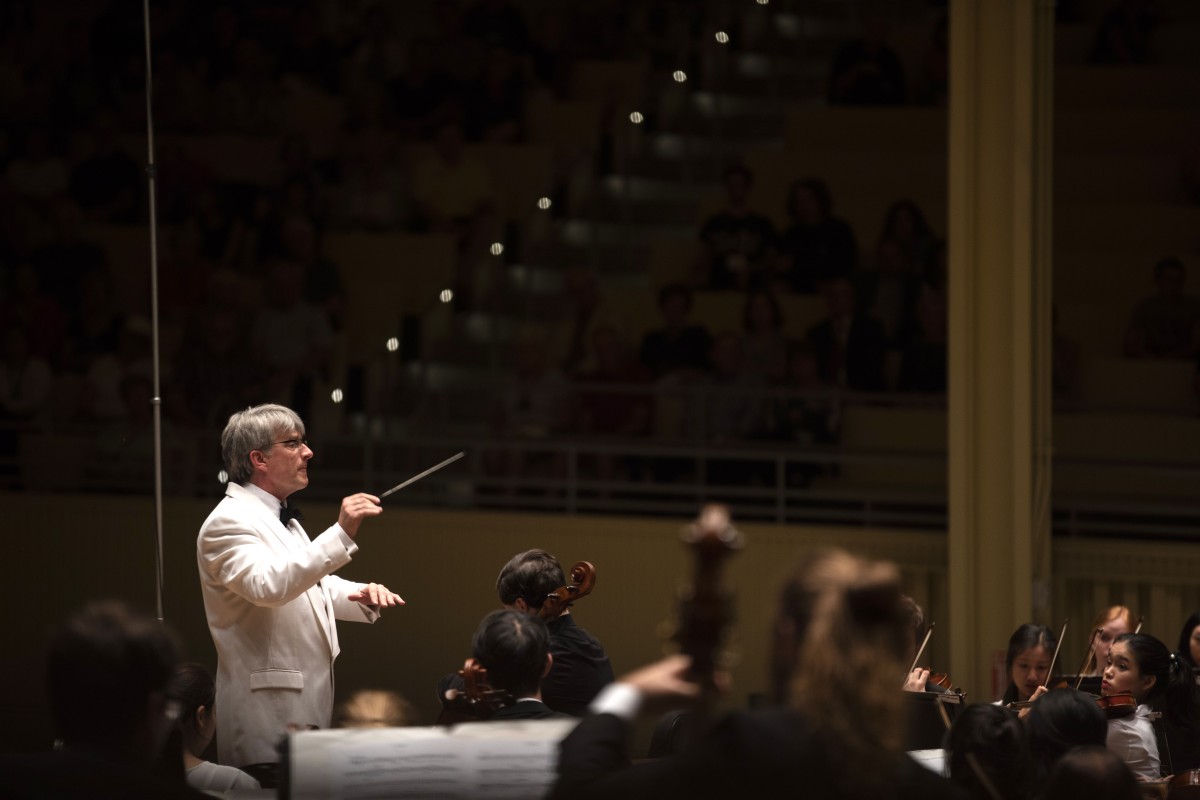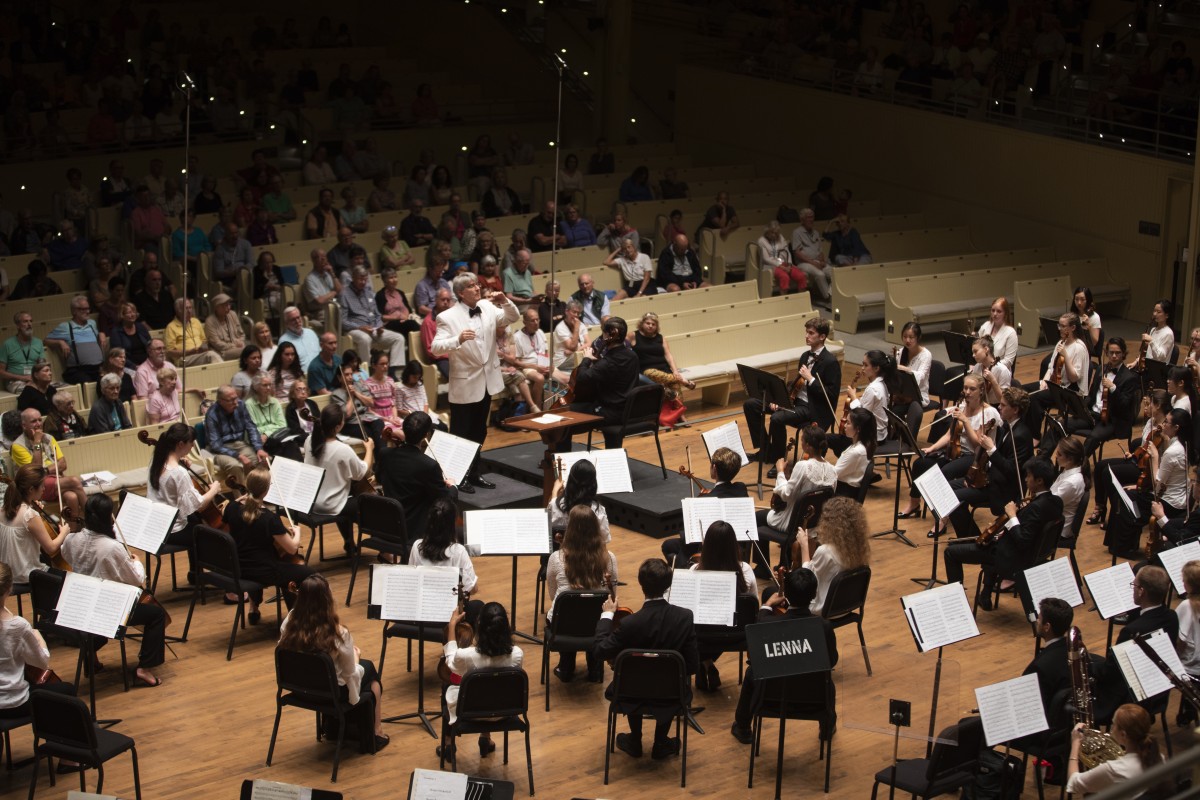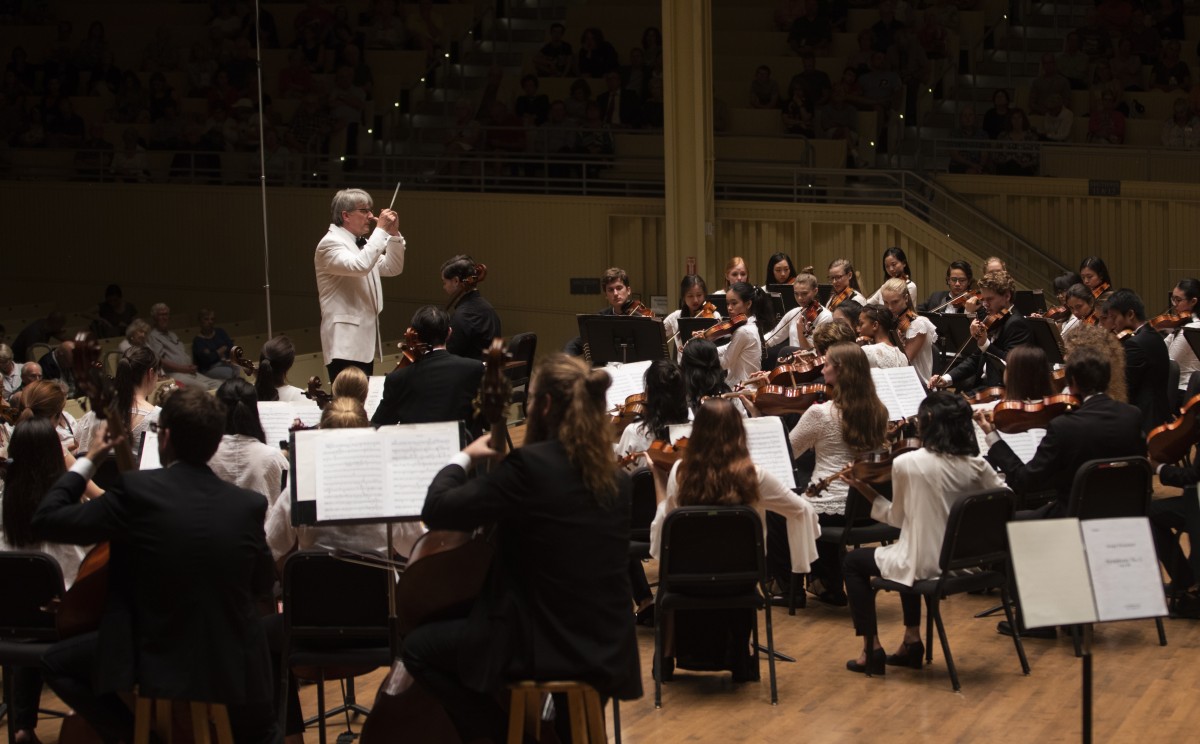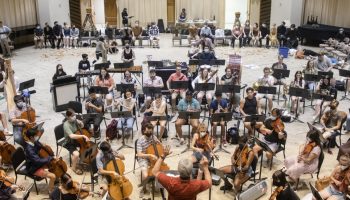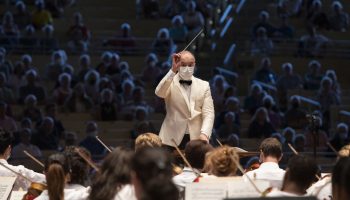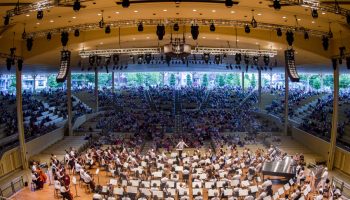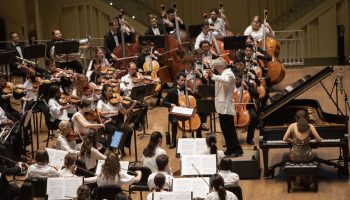When the Music School Festival Orchestra makes its debut this season, the performance will feature a mix of pieces, both old and new, by composers both living and dead. So at 8:15 p.m. Monday, July 1 in the Amphitheater, audiences will get a taste of classical standards and be exposed to work from a modern composer.
There are more than 80 student musicians in the MSFO, playing around 14 different types of instruments. For some, it is their first summer at Chautauqua; others have returned from previous years. But tonight is the first time this group of students will play together in concert.
Every year, the MSFO is faced with the same challenge: forming a brand new orchestra and getting concert-ready within a week of the musicians first meeting each other. However, even after just seven days of rehearsals, a collection of strangers has transformed into an orchestra.
“It was difficult at first because we all come from different schools and different backgrounds,” said violinist Cristina Micci. “But I think after having rehearsal after rehearsal, we all kind of fit together.”
The concert will begin with a 7-minute piece by American composer Donald Grantham titled “To the Wind’s Twelve Quarters.”
“Part of a young professional’s training is playing new music and music by living composers,” said Timothy Muffitt, artistic and music director and conductor of the MSFO. “It also balances the concert out nicely from an artistic perspective.”
Though the piece is the shortest in the program, it’s full of personality.
“It’s (exciting) in that it’s very fresh and music of today,” Muffitt said. “It’s also a very exciting, rousing, uplifting work — but it has a dark side, which is where the fun is.”
This piece will be followed by Edward Elgar’s Variations on an Original Theme, Op. 36, “Enigma,” a composition that Muffitt called “a Romantic-era staple.”
“Elgar really puts the whole orchestra to work in exploring the full palette of color and sonority that a symphony orchestra can create,” Muffitt said.
Much longer than Grantham’s, Elgar’s piece lasts for around 35 minutes, presenting many of its own unique challenges to the musicians.
“I really like the Elgar; it’s a fun piece,” said violinist Julimar Gonzalez. “It’s really hard, but a lot of fun.”
After intermission, the MSFO will launch into the finale: Wolfgang Amadeus Mozart’s Symphony No. 38 in D major, K. 504, “Prague.”
“Nothing brings an orchestra together more quickly than having to play a Haydn or Mozart symphony,” Muffit said. “It really helps us get to know each other. It’s immensely demanding music from the perspective of orchestral performance.”
Mozart’s piece lasts for about 30 minutes.
“It’s such a fun piece to play and collaborate with the new woodwind and orchestra players to come in,” said Ian Egeberg, an oboist who is at Chautauqua for his second year.
With every concert, the string seating is rotated so that the person who is sitting principal, or “first chair,” changes each time. The winds and percussion seating is rotated with every piece. This way, more of the musicians get more experience in being in the principal leadership position. Though later concerts in the season may have soloists, tonight’s performance is all about the MSFO coming together publicly for the first time this season.

